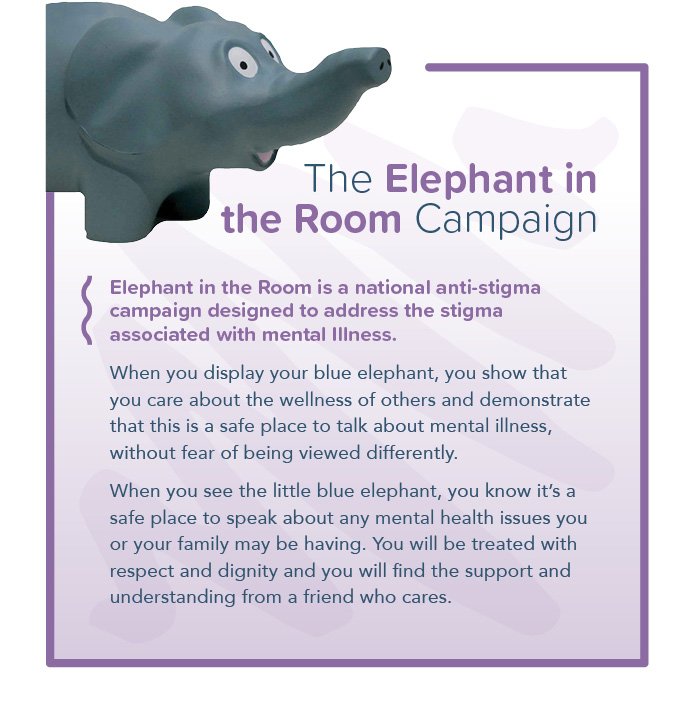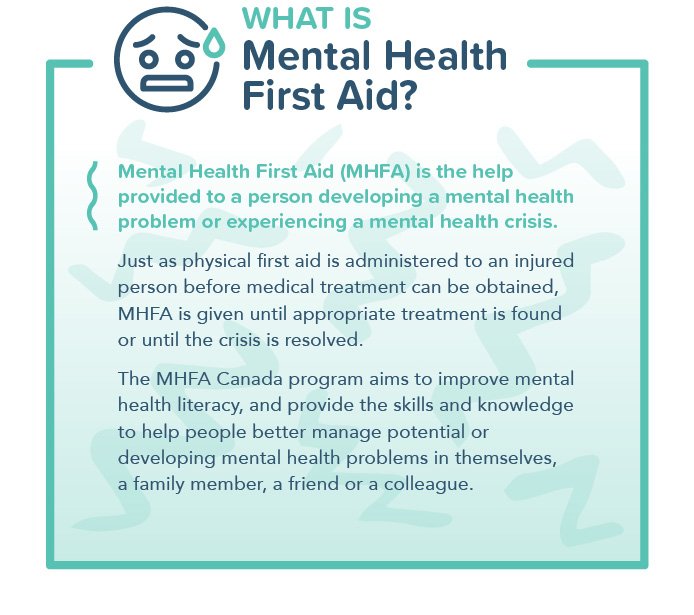More than a bandage: breaking down barriers with Mental Health First Aid
How one employee found support and acceptance in the workplace

August 9, 2017
By Karen Diaper, Communications Manager, Covenant Health
In day to day conversation we’re often asked, “How are you?” We usually respond that we’re doing well and things are great, but when was the last time you really thought about your answer?
Talking about your health may be difficult, and when it comes to our mental health, the experience can be highly charged. This was true for Kim, who was diagnosed with Post Traumatic Stress Disorder (PTSD). She knows only too well how her answer can vary, especially in the workplace.
“Sometimes it’s hard to have that conversation, as for me emotions can be a trigger,” shares Kim. “It could trigger me for the rest of the day, or longer.”
“I was terrified how it might impact my job or how people might see me; there is still a stigma around mental illness.”

Kim struggled for two years with her symptoms, which affected her job and raised issues around job performance. Her struggles were noticed by a co-worker, who desperately wanted to help, but had no idea where to begin.
“I was scared for Kim, not just in the moment when she was having a panic attack or struggling with her medications. There were a couple of times when she didn’t come to work the day following an incident where I was concerned for her safety,” shares her co-worker. “It got to the point I wondered whether I should go to her house to check on her.”
The situation progressed until it became untenable.

Under the supervision of her care providers, Kim took a year away from work and completed an outpatient Hope and Wellness program at Alberta Hospital. It was during that time she heard about creating a Wellness Recovery Action Plan (WRAP). This is a plan to help you choose who assists and supports you in your recovery as you work on a plan for wellness.
“When you’re ill, sometimes you don’t know,” says Kim. “The plan made sure I was eating, taking my meds, and getting enough sleep. This creates a tool I can share with friends and family, so they can look at it if I’m having a bad day, and check in with me that I have done all of those things.”
Returning to work, Kim was encouraged to see that Mental Health First Aid courses were being offered to all staff, and enrolled in the course. “For someone struggling with mental illness, seeing this was being offered I finally felt like we were getting somewhere.”
During the course, Kim saw how her WRAP plan could help her in her work setting, as it had in her personal life.
Mental health first aid is a resource designed to help people in all areas of their lives, says Laurel Kircher, Wellness Advisor with Occupational Health and Safety at Covenant Health, and an instructor with Mental Health First Aid.
“We view mental health first aid as equipping people to understand they are not the solution or a therapist,” says Laurel Kircher, “It helps people understand how to tactfully open a conversation if you suspect someone is struggling and be a connection or conduit to a resource, tool or strategy that can help someone right where they are in that moment.”
At work, casual conversations regarding mental health fit well in a 15-minute coffee break window. If it's going deeper than that because the friendship is deeper, or the issue at hand significant, Laurel suggests that people meet at lunch for a walk or after work for coffee.
Since it was introduced, more than 700 Covenant employees have completed the Mental Health First Aid course.
“I'd hide if I had a panic attack. When you're sick, that's when you need your supports the most. You hide and you're worse off. Now I don't have to hide.”
“I have been in crisis at work and I know that I'm not the only one that could happen to,” shares Kim.
After sharing her WRAP plan, with her triggers identified, her supervisor can help Kim with a pre-arranged, non-verbal cue: a reminder to take a moment and breathe.
Scott Aylwin, Senior Director, Addiction & Mental Health, sees the value provided by this tool. For people returning to work, it underscores they have people on their side.
“This can mean the difference between being successful in your job and not,” says Scott. “There are people that struggle on a daily basis and the prevalence of that in the workplace is incredibly high. This is a tool that can help normalize the conversation.”
For Kim, the experience has been transformational. “I'm glad that I shared it. It's something that has helped me stay here. Even if they didn't know how to use it, I know I have a tool that's going to support me.”
If you or someone you know is in crisis, there are resources available 24/7. Call the Mental Health Help Line at 1-877-303-2642, call Health Link at 811 or call 211 Alberta. Other supports and resources can be accessed through Mood Disorders Society of Canada
If you are interesting in learning more about Mental Health First Aid, or are interested in taking the course, visit mhfa.ca
More information on the Elephant in the Room campaign available here